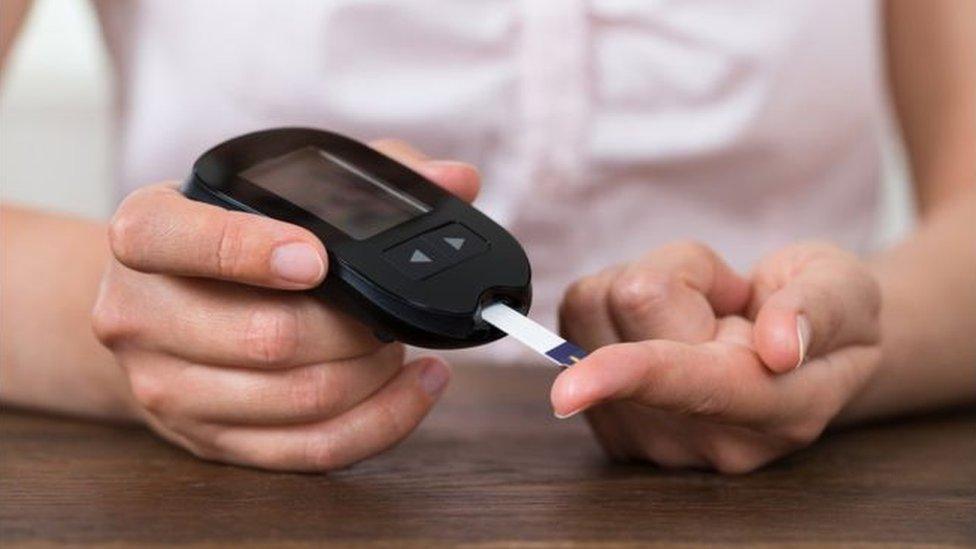World Diabetes Day: 'What I wish people knew about my condition'
- Published
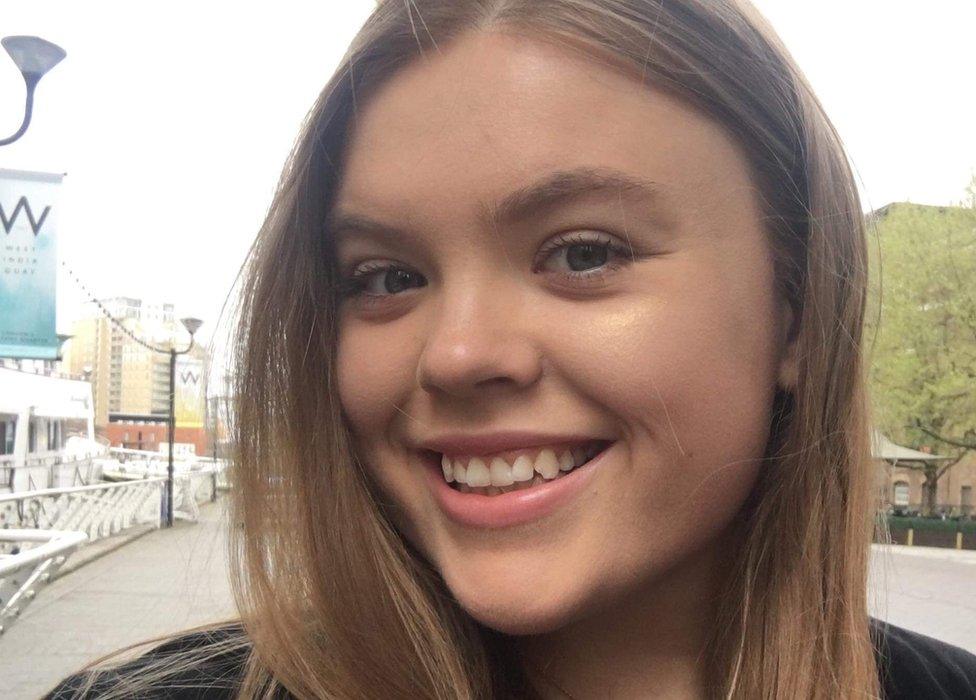
April says her friends didn't know what to do when she had a hypo
On World Diabetes Day, three people talk about what it's like to live with the condition and what they wish people knew about it.
'People think I can't eat sweets'
April Catherine Rose has type 1 diabetes, meaning her body doesn't produce the hormone insulin and can't properly control the amount of sugar in her blood. She says there are plenty of misconceptions.
"People think I can't eat sweets, chocolate or cake," she says. "I can eat it, I just have to take insulin."
People with type 1 tailor their dose of insulin to the amount of carbohydrate in the food they're eating, but April says people don't always understand how dangerous the condition can be.
When she was at university, a housemate drunkenly moved her insulin from the fridge to the freezer - and insulin doesn't work if it gets too cold.
"As it was frozen I had to throw it away," says April, saying she had only got the prescription two days previously. "People don't realise how serious it is - it's someone's life on the line."
'If I'm having a hypo, don't give me insulin'
The 21-year-old actress adds that in "life or death situations" most non-diabetics may not know what to do. Once, April says, her lunch plans with friends almost became fatal.
April had a "hypo", short for hypoglycaemia, meaning her blood sugar levels were too low. Hypos happen if the balance of medication - usually insulin - isn't right. Symptoms can include shaking, sweating, going pale, being anxious or irritable and blurred sight.
They can be caused by things like delaying meals, not having enough carbohydrate, doing lots of exercise or drinking alcohol on an empty stomach.
"My body was shutting down on me," she says. "I was disorientated and I didn't have the energy to speak."
But when they were trying to help, her friends injected her with insulin - which made her levels even lower. When her condition did not improve, another friend was called who explained that she needed sugar, not insulin.
If someone has a hypo, external, they need a fast-acting carbohydrate - something sugary that will enter the bloodstream quickly. If someone is unable to treat their own hypo and they are unconscious, an ambulance should be called.
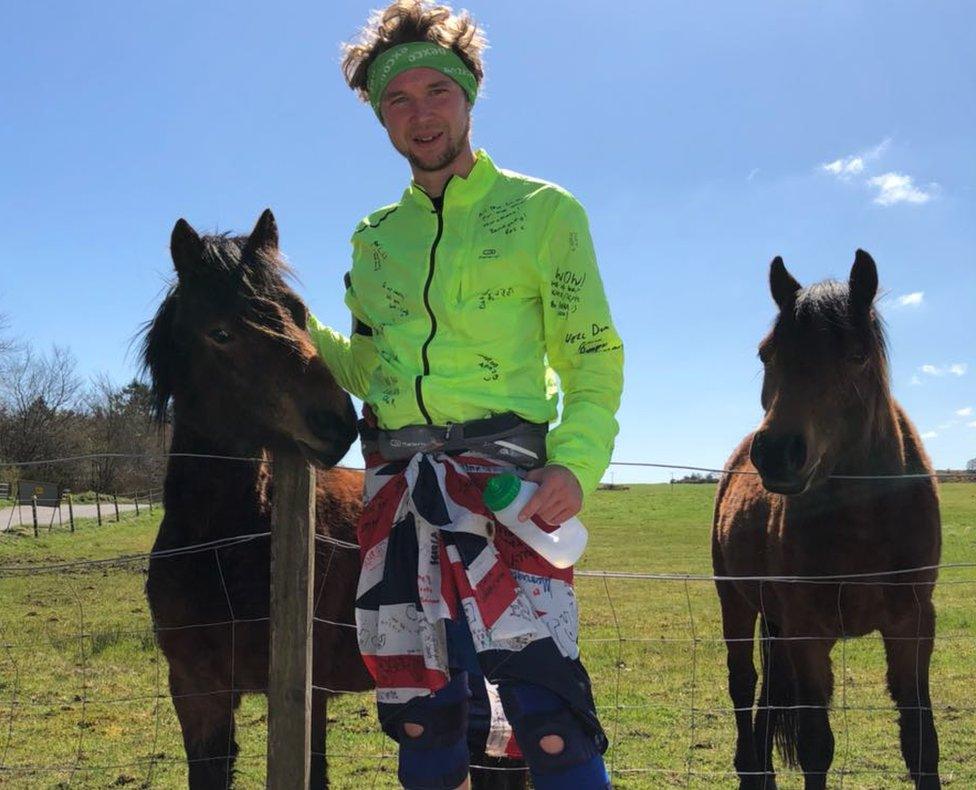
Gavin Griffiths runs marathons despite his diabetes
Gavin Griffiths views his Type 1 diabetes in a positive light. But that's not always been the case.
"I was diagnosed at eight years old and I went into school and I suddenly felt very shy and very different compared to everyone else," he says. "That wasn't me beforehand."
'Don't think I'm different'
Gavin says his school stuck a big photograph of him outside the medical room - "like a wanted poster" - which made him feel singled out.
"I didn't want to draw more unwanted attention from the other kids so I would avoid testing my blood sugars. My confidence was completely shattered.
"Through sport I was able to find myself again and feel more confident and comfortable in myself."
Now, aged 27, Gavin feels the opposite from how he did as a child. He used his confidence to develop his own diabetes educational company, DiAthlete.
He also takes part in endurance challenges and earlier this year ran 25 marathons in May.
Gavin wishes the media better portrayed the specific details of the types of diabetes and their symptoms. He also wants more to be done in schools to educate children about the condition.

Diabetes - the basics
There are two main types of diabetes - type 1 and type 2. There are also other kinds like gestational diabetes, which develops during pregnancy.
In type 1, which is typically diagnosed earlier in life but can develop at any age, insulin has to be injected, either manually or through a pump. It can't be prevented or cured and it's not caused by lifestyle.
People get type 2 when the insulin they produce isn't working properly, or not enough is being made. It can be linked to being overweight or inactive and also to family history. It's much more common than type 1, accounting for about 90% of all people with diabetes. Some people with type 2 take insulin, while others control their blood sugar levels with medication, exercise and a healthy diet.
Having uncontrolled blood glucose in the long run can lead to complications, including problems with nerves, kidneys, eyes and feet, but the risk of developing them can be reduced with the right treatment and care.
Sources: NHS, external, Diabetes UK, external

'Understand if I get tired'
Much to her amusement, Hildia Campbell says she's fallen asleep in public places because of her diabetes.
"If I go out and it's past a certain time, I fall asleep after taking my tablets," she says. "I've had pictures taken of me sleeping at parties."
It is not, Hildia stresses, because she wants to sleep, but because her body gets tired because of her type 2 diabetes.
"I wish everybody understood diabetes a bit more," she says.

Hildia says she's now more aware of what she puts in her body
When diagnosed 14 years ago, Hildia was not aware that healthier food options and exercise could have helped prevent her from developing the condition.
She was also unaware of the side effects that could happen from taking tablets to manage her diabetes and wishes more emphasis was placed on nutrition education.
Studies show that type 2 diabetes can be reversible through a healthy diet and active lifestyle.
"It was a turning point for me as it has made me become aware of what I put in my body and the doctors have told me that diabetes is on its way out of my body.
"The last blood test I had, the doctors were pleased that my diabetes was more under control. I've lost a lot of weight and inches off my body."
- Published14 November 2018
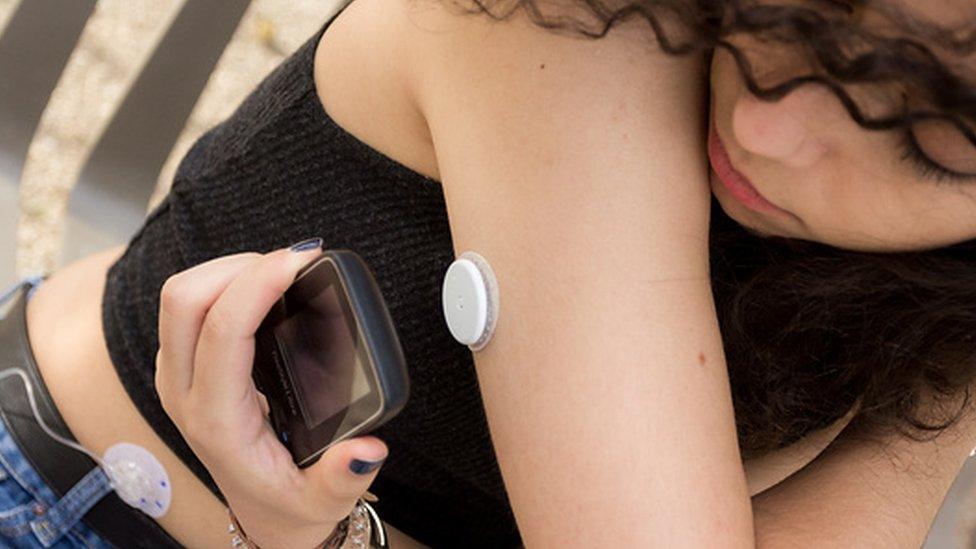
- Published8 November 2018
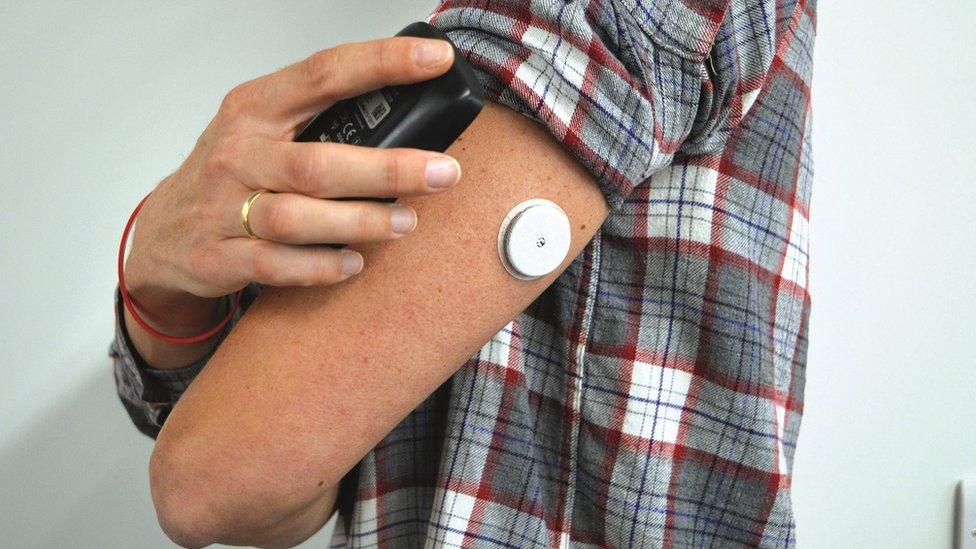
- Published17 May 2018
